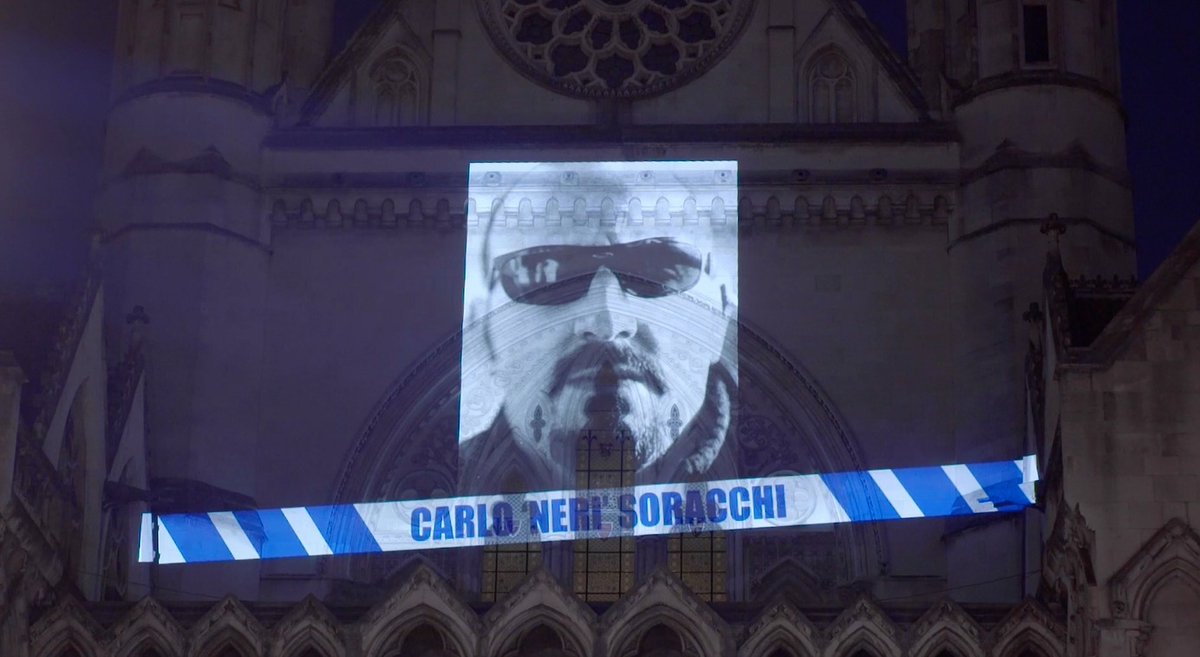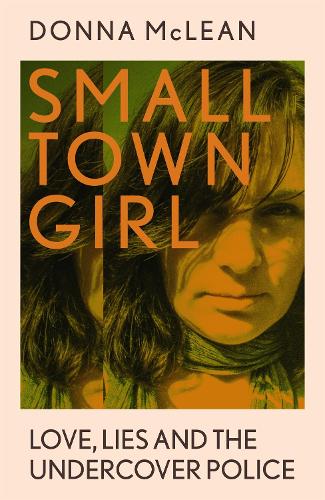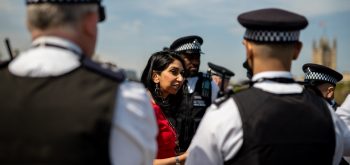Donna McLean is one of the women activists from the campaign group Police Spies Out of Lives, which supports women affected by undercover police abuses. Originally known by the pseudonym ‘Andrea’, she dropped her anonymity in 2020.
We know of more than 30 women who were deceived into long-term, intimate relationships by undercover police officers, members of the secretive Metropolitan political policing units. Some 250 officers spied on more than 1,000 political groups since the formation of Special Demonstration Squad (SDS) in 1968. The SDS was disbanded in 2006, when the National Public Order Intelligence Unit took up the mantle. These undercover spies often formed relationships with women as part of their ‘tradecraft’, concealing their true identities with the help of state-produced fake ID such as driving licences and passports.
We are told that the political policing unit was finally closed down in 2011.
- You can read an unedited version of this article int he latest issue of Proof magazine
- Donna McLean’s Small Town Girl: Love, Lies and the Undercover police (Hodder & Stoughton, 2022) is now out
The first civil case was lodged against the Metropolitan Police and the Association of Chief Police Officers in December 2011. It involved eight women who were deceived into long-term intimate relationships by five officers who had infiltrated social and environmental justice campaigns. The eight women were represented by the human rights law firm Birnberg Peirce.

Pic: David Mirzoeff 2019
The women’s case included both common law claims and human rights claims. In both parts of the case the women faced legal battles by the police, who attempted to strike out the case, have the case sent to secret court, and attempted to hide behind the stock answer of Neither Confirm Nor Deny. The eight women asserted that the actions of the Metropolitan police officers breached their human rights, subjecting them to inhumane and degrading treatment, and disrespecting their private and family life and their right to form relationships without unjustified interference by the state. The Metropolitan Police agreed that they had abused their human rights, and issued a full apology, which was part of the settlement of the case.
I was deceived into a long-term intimate relationship by the SDS officer Carlo Soracchi (‘Neri’). We met in London in September 2002, at an anti-war demonstration. Soracchi was a steward on the march, alongside my friend and work colleague Dan, and a wider group of trade union activists and anti-racist campaigners that I knew socially. At that time, I was working in a specialist hostel for former rough sleepers in south London, and I was a trade union rep for TGWU (now Unite). Carlo was a locksmith, working for a company in Kings Cross which exists to this day.
Carlo and I hit it off immediately, and within a few weeks he had moved in to my flat. He asked me to marry him on Hogmanay, just three months after we had met, surrounded by our close friends. He even rang my mum to tell her the good news. We lived together for two years and we planned our future, including having children together. We even chose names for them.
My friends, family and work colleagues got to know Carlo. They loved and trusted him.
He came on family holidays, attending key events such as my sister’s graduation and was welcome at work nights out. Carlo stayed overnight in my family and friends’ homes. To the outside world, we seemed like the perfect couple. I thought I had found my life partner.
*
 In 2004, Carlo appeared to suffer a catastrophic mental health breakdown. He had recently been made aware of sexual abuse within his family. Early in our relationship he disclosed childhood trauma and domestic abuse perpetrated by his father. But the new revelations of sexual abuse, against his sister, seemed to tip him over the edge. He lost an alarming amount of weight, his appearance changed dramatically, and I found myself living with a deeply troubled man. In the six months leading up to his final disappearance from my life, in November 2004, he went missing several times and even texted me on my friend’s 30th birthday saying he was suicidal. I felt helpless and the weight of worrying about Carlo had a massive impact on my life, undermining my ability to focus on work, and carving away at my physical and mental health. I ended up homeless myself, sofa surfing around south London for a few months until I built up my strength again.
In 2004, Carlo appeared to suffer a catastrophic mental health breakdown. He had recently been made aware of sexual abuse within his family. Early in our relationship he disclosed childhood trauma and domestic abuse perpetrated by his father. But the new revelations of sexual abuse, against his sister, seemed to tip him over the edge. He lost an alarming amount of weight, his appearance changed dramatically, and I found myself living with a deeply troubled man. In the six months leading up to his final disappearance from my life, in November 2004, he went missing several times and even texted me on my friend’s 30th birthday saying he was suicidal. I felt helpless and the weight of worrying about Carlo had a massive impact on my life, undermining my ability to focus on work, and carving away at my physical and mental health. I ended up homeless myself, sofa surfing around south London for a few months until I built up my strength again.
It was in the summer of 2015 that I received a life-shattering message from an old friend. He told me that a group of activists now believed that Carlo had led two completely different lives: one, with me, as a locksmith and left-wing activist and the other, with his wife and children, as a highly trained police officer, operating in the so-called elite SDS, a secretive unit within the Metropolitan police.
For over a decade I had been oblivious to this reality, that the man I lived with was a spy, paid to lie by the state.
I quickly met with the activists and researchers who had harboured these suspicions about Carlo’s sudden disappearance. They had been researching his identity and whereabouts for a year and were able to provide me with incontrovertible proof that Carlo was an undercover police officer. Seeing his profession documented on his marriage certificate and his children’s birth certificates was one of the most distressing aspects of the discovery. It made me question everything I had believed about that whole period of my life. I was appalled to learn that it was a prerequisite for him to be married; to have a stable home to go back to when his long undercover deployment ended.
Finding out the truth, or part of it, re-opened old and painful wounds. My truth became a fiction. For the second time, Soracchi and his paymasters had a devastating impact on my family life, my career and my health. I became distracted, sleepless, anxious. I launched a civil case against the Metropolitan Police, who admitted liability after three weeks, yet have consistently adopted a cruel and adversarial approach to litigation. My civil case against the Metropolitan Police remains unresolved after five long years.
*
Soon after my discovery in 2015, I applied to become a core participant in the public inquiry into undercover policing which was set up in 2014 by Theresa May, then Home Secretary, to investigate the conduct of undercover police officers in England and Wales. Initially we welcomed the establishment of the public inquiry, which was originally known as the Pitchford Inquiry. The remit was to investigate undercover policing in England and Wales, but this does not go far enough. In limiting it only to England and Wales, crucial information on the actions of undercover operatives travelling and infiltrating actions and movements in Scotland, Ireland and elsewhere is ignored.
Sir Christopher Pitchford stepped down due to ill health in May 2017 and sadly died later that year. The incumbent presiding judge, Sir John Mitting, has consistently made decisions that we feel benefit the police, who perpetrated these abuses, more than benefits us, the survivors. We have repeatedly asked for a panel of advisors to support Mitting as he lacks knowledge and experience in relation to matters of race, class, and gender. this request. Our requests have been constantly refused.
Like the other core participants, I am deeply frustrated by the lack of impartiality of the chair, and of his seemingly unfettered belief in what the police choose to tell him. Yes, that is the same Metropolitan police force whose officers spied on the Stephen Lawrence family, who were responsible for stealing dead children’s identities, who colluded in the illegal blacklisting of thousands of construction workers and who systematically entered into long-term intimate relationships with women who believed them to be activists. Highly trained liars, yet Mitting accepts their false word at face value.
It is apparent that this was never about an individual officer’s ‘integrity’. These undercover operatives were trained and paid to lie. Sexual relationships were known about and signed off by these managers. Deceiving women into long term intimate relationships was an core part of the strategy. This was no accident, no ‘rogue’ officer taking advantage. This was systemic. It was institutional misogyny. It was state-sponsored abuse of women on an enormous scale. In the recent hearings, a former officer, when asked about the nature of sexual relationships with activists, compared them to ‘sampling a product’, as a cop infiltrating an organised crime gang might sample the drugs.
*
The Public Inquiry into Undercover Policing has been mired in arguments about procedure, anonymity orders and there has been obfuscation on the part of the police at every turn. The inquiry should have concluded in 2018, but we only heard the first tranche of evidence in the in November 2020. It is now due to report in 2024, but I suspect there will be further postponements. The British establishment continues to cover up the undercover policing scandal, through a strategy of delays, smokescreens, and institutional dishonesty. I now will not give evidence (or hear Carlo’s) until 2023 at the earliest. It should have been this summer. Any hope of moving on with my life is yet again thrown into the long grass. The cost of the inquiry to date (Feb 21) is an eye-watering £36,219,100.
Many of us targeted by these sinister secret police have campaigned for years to get answers, often carrying the weight of severe mental distress and trauma, because of the state-sanctioned abuses we were subjected to. The similarities between the other women’s stories and my own are astonishing. At least twenty of the undercover officers deployed in political groups between the mid-70s and 2010 are known to have had sexual relationships, some lasting for many years. At least three fathered children with women activists.
Amongst the wider group of people affected by abusive undercover policing there are blacklisted construction workers, miners from the 1984/85 strike, trade union activists, family justice campaigners, environmental activists, as well as the women like me, who were deceived into long-term sexual relationships. We have been fighting long and hard, collectively, for truth, justice, and access to our files.
We are working alongside other core participants to try and make this inquiry worth our time and participation. The more public pressure felt by those under scrutiny, the more likely it is that we will achieve some justice. If those trying to get away with covering up their wrong doing believe no-one is scrutinising them, or that nobody cares, they are more likely to continue violating the human rights of others.
I stand in solidarity with everyone affected by the spycops and their incalculable abuses. We will not be broken by their dirty tricks. If anything, this just makes us stronger.
Find out more: www.policespiesoutoflives.org.uk
Buy Proof magazine, support the Justice Gap







